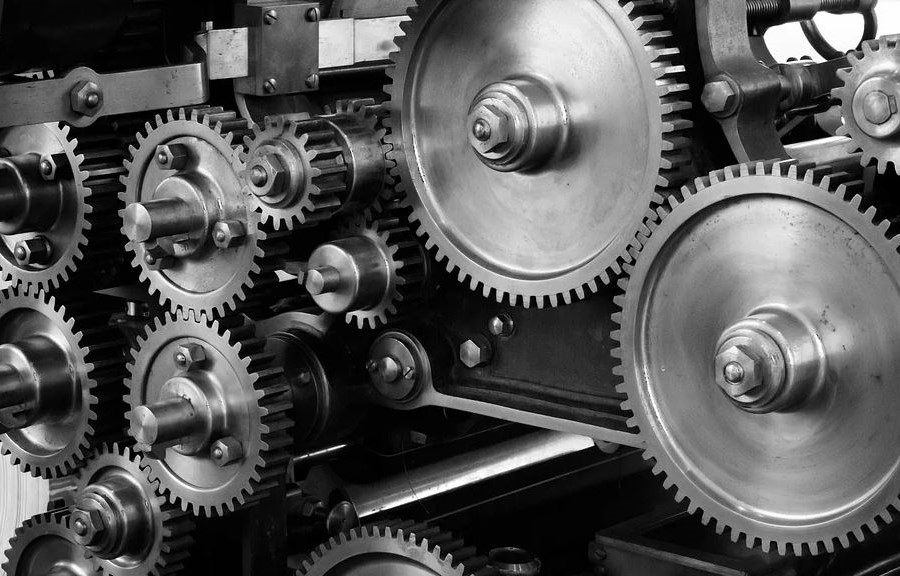What Effects Does Electromobility Have on the Machine Tool Industry?

The automotive industry is the largest customer for machine tools. However, due to the change from the combustion engine to the electric motor, the automotive sector is facing serious changes that are causing noticeable uncertainty among suppliers. The fear of losing jobs also plays a major role in this. What effects does electric mobility have on the machine tool industry? And can electric motors and combustion engines coexist?
Investments Fall Dramatically in 2019
In 2019, the investment volume in new motor vehicle production lines decreased significantly, but the reticence in the automotive sector can be explained. After all, investments must be made at the right time and to the ideal extent, and that is exactly what is proving to be difficult since the structural change from combustion to electricity is not an easy process. Production lines must adapt to the new requirements of electric mobility without neglecting the combustion engine. For many end customers, the entry-level price for an electric vehicle still seems too high. Moreover, the infrastructure for battery recharging is weak and lacks attractiveness. The situation was aggravated in 2019 by global political tensions, particularly the trade war between the USA and China. The sales market for machine tools collapsed, requiring machine tool manufacturers to work with foresight to avoid being completely replaced. This is because some machine tool manufacturers specialize exclusively in the power train for combustion engines.
Differences Between Combustion Engines and Electric Motors

A car with a combustion engine has thousands of parts in the power train, whereas an electric car only has hundreds; we are talking about a factor of 10. Other parts lose complexity. For example, the gearbox is significantly simplified. Usually only one transmission exists. This eliminates the need for complex gears. Electric vehicles have about 60% less metal removal volume compared to the combustion engine.
Is the Combustion Engine A Thing of the Past?
The good news is that internal combustion engines will continue to be developed further, in terms of efficiency and lightweight construction for example. This offers value adding potential for machine tools.
The production of passenger cars with combustion engines (including hybrids) is expected to peak in 2025. However, according to various studies, the switch from the combustion engine to the electric motor will be slower than many expect. For example, in 2040, even with a quick change, 80% of the production volume of internal combustion engines is expected to be the same as in 2025. Only in 2024 will both technologies – internal combustion engines and electric motors – be equally attractive for end consumers. Interestingly enough, even hybrid vehicles have a 25% higher metal removal volume than combustion engines
How Sustainable are Electric Vehicles?
Critical voices say throughout the entire value chain, the electric vehicle does not appear to be more sustainable than a combustion engine. Instead, there is a shift in the CO2 load. This is primarily due to the energy-intensive extraction of lithium, manganese and cobalt. In addition, two million liters of water are needed for one ton of lithium. Furthermore, the electricity in the electric car is largely generated by fossil fuels and the disposal of the battery cells is also difficult. The potential for recycling and cobalt-free alternatives provides hope here.
Conclusion: The Combustion Engine Remains Relevant
To sum up, we can conclude:
- Electric vehicles have about 60% less metal removal volume compared to the combustion engine. The value creation potential for machine tool manufacturers is decreasing.
- Internal combustion engines will remain relevant at least until 2040. Forecasts that go beyond this are subject to too much uncertainty.
- The optimization of internal combustion engines with regard to efficiency and lightweight construction continues.
Forecasts, analyses and expert opinions sometimes diverge widely. The future will also depend heavily on what political means are employed to make electric vehicles more attractive. The machine tool industry must prepare for electric mobility in good time. There are pioneers in this field, such as the GROB company from Mindelheim, which has been intensively dealing with the topic of electric mobility for years and already offers tangible solutions.
As an expert in energy supply systems, we expect compact space conditions for electromobility and the use of laser fibers for welding systems. igus® already has the right solutions for this.
To learn more about our solutions for the automotive industry, visit our webpage or contact the Head of Automotive at igus North America with any questions.



